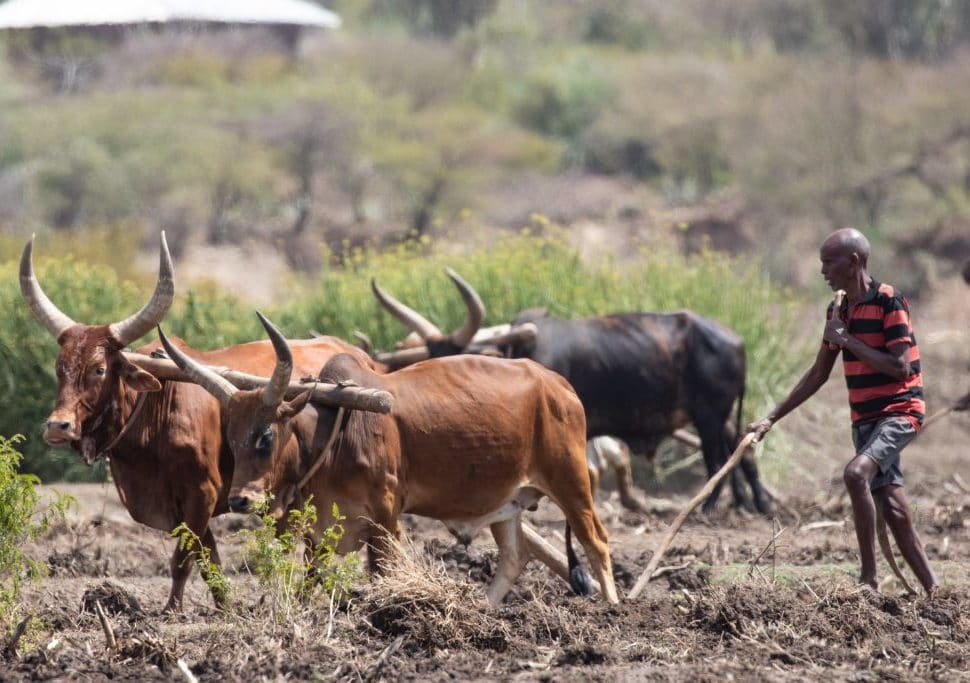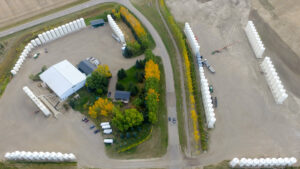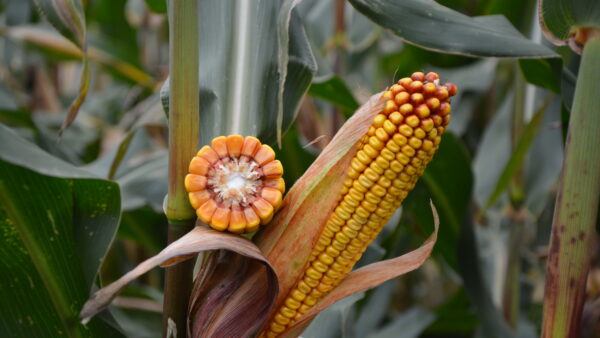In developing countries, being a farmer isn’t what most people aspire to. There is a lot of manual labor involved for not a great amount of economic return. The “middlemen” are actually the most profitable in the chain of food supply. They have complete control over the pricing that farmers are paid and what the manufacturer must pay for a product.
We saw an example of their power while working on a Plant Breeders Without Borders (PBWOB) project in Indonesia. Farmers could not afford to apply fertilizer to Bambara groundnut at sowing. The middleman offered to pay for the fertilizer, but unfortunately, the farmer was locked into selling their seed to that specific middleman at harvest.
Normally, the farmer would get higher prices, higher prices by forcing the middleman to bid against others to buy their seed, but instead, ended up being trapped by the middleman to accept their lower offer for their seed. On top of that, the farmer still had to pay back the middleman for the fertilizer.
One of the key components in holding farmers back in developing countries is the lack of technology. Don’t think of high-cost equipment such as things like GPS equipment, but think instead of lacking simpler technology such as single row seed sowing equipment.
While working on a PBWOB project in Nepal, one of the species that we were working on was finger millet. This crop was hand sown by farmers. Because the species was slower to germinate than some of the weeds in this environment, there was a lot of labor time that was required to hand weed the crops.
Weeding isn’t a fun job at any time, but weeding in the hot sun of a tropical environment is hard work. To help, we introduced farmers to the Earthway single row planter. By sowing in equally spaced rows, farmers could use other equipment, such as hoes, to safely remove weeds between rows without the risk of hoeing out the
desirable species.
Although this seems basic, this made a massive difference to the farmers there. Many people from rural areas in Nepal, especially the young and the males, go to the cities to find work to send money back to their families. This leaves the grandparents and the mothers to do all the farm work, who are already overburdened by the other tasks they must carry out each day.
Simple technology made it easier to weed by making the task faster, needing less labor units and more efficient by not removing that desirable species. When we did a budget with these farmers growing finger millet, some of them realized that they were growing their millet at a loss. By making farming methods more efficient they were able make the crops more efficient to grow with one labor unit.
Making farmers more profitable is the greatest challenge that agriculture has in developing countries. This was a trend that took a long time to occur in the Western world, but now here in Australia we are seeing young men and women leaving their jobs in the cities to come back to the farms. How can we speed up this process in developing countries? It is really a question of supply and demand.
As demand for food increases due to increasing population and supply decreases due to climate change and people leaving farms for the cities, we will see an increase in the profit that farmers make. Increases in farm technology will also make farming easier, encouraging people to take it up as a career.
More equal sharing of profits to farmers along the supply chain in developing countries is also needed. Initiatives such as “fair trade” see Western companies and consumers making sure that farmers are getting a better margin for the product that they grow.
Another way to improve farmer profitability is the formation of grower co-operatives. Smallholder farmers can pool their produce to find markets that will give them a better price. Co-operatives can also pool money so that new technology can be purchased and shared that will allow their farmers to be more profitable and sustainable.
Farming doesn’t have to be seen as a poor person’s trade. As food demand increases above supply, farmers will be more valued in society and will be compensated more for what they deserve.
—Leddin is the founder of Plant Breeders Without Borders













